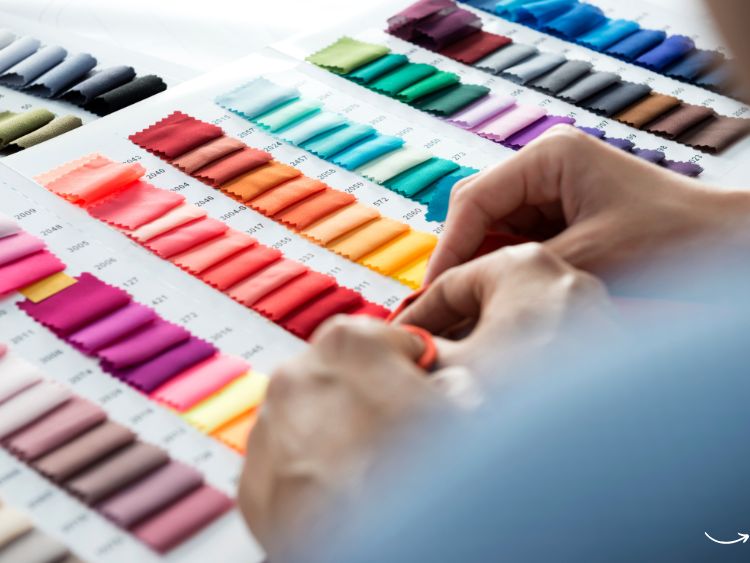If you’re passionate about fashion and have a keen eye for trends, there’s no denying the magnetic allure of fashion design dresses. These garments embody creativity, self-expression, and the ever-evolving spirit of style. From the intricate craftsmanship of haute couture to the effortlessly chic appeal of street style, fashion design dresses showcase the artistry and innovation that define this captivating industry.
Whether you’re a budding designer looking for inspiration or just a fashion enthusiast exploring the latest trends, we’ve got you covered in this comprehensive guide. Let’s unravel the world of fashion design dresses, explore the trends that are stealing the spotlight, and delve into some fascinating insights about dress-making.
Understanding Fashion Design Dresses
Fashion design dresses are more than just pieces of fabric stitched together; they’re wearable art forms that embody stories, cultures, and emotions.
What Defines a Fashion Design Dress?
- Creativity and Uniqueness: Each dress is a canvas for the designer’s creativity, often incorporating unique patterns, colors, and textures.
- Craftsmanship: From pleats to embroidery, the craftsmanship of a dress often determines its quality.
- Versatility and Purpose: Fashion design dresses cater to different purposes, whether it’s evening wear, bridal, casual chic, or avant-garde.
Major Dress Categories
- Haute Couture: Exclusive, custom-fitted pieces designed for specific clients.
- Ready-to-Wear (Prêt-à-Porter): High-quality designs made in standard sizes.
- Mass Market: Trendy designs produced for the general consumer market.
- Sustainable Fashion: Environmentally-friendly, ethically-produced dresses.
Top Trends in Fashion Design Dresses
Every season, new dress trends emerge, reflecting the zeitgeist of the fashion world. Here’s a look at some of the most popular trends:
1. Sustainable Fashion
With eco-consciousness on the rise, sustainable dresses are a major trend:
- Eco-Friendly Fabrics: Organic cotton, bamboo, and recycled polyester.
- Zero Waste Design: Minimizing fabric waste during production.
- Upcycled Fashion: Repurposing vintage or discarded textiles into fresh designs.
2. Puff Sleeves
Reminiscent of the romantic eras of the past, puff sleeves add drama and elegance.
- Victorian Revival: Long puff sleeves with a high collar.
- 80s Vibe: Short, voluminous sleeves for a retro touch.
3. Cut-Outs and Sheer Fabrics
- Strategic Cut-Outs: Tasteful slits and cut-outs that add intrigue.
- Sheer Elegance: Subtle sheer overlays or full-length transparent dresses.
4. Tiered and Ruffled Dresses
These designs bring movement and volume.
- Tiered Maxi Dresses: Multiple layers for a flowy, ethereal feel.
- Ruffled Details: Frills on sleeves, hems, or bodices for added texture.
5. Minimalist Chic
Understated yet sophisticated designs.
- Slip Dresses: Simple, sleek silhouettes that are effortlessly stylish.
- Monochromatic Palettes: Subdued tones that speak of quiet luxury.
6. Vintage Revival
A nod to bygone eras, vintage-inspired dresses are back in vogue.
- 50s Fit and Flare: Cinched waist and flared skirts.
- 60s Mod: Bold prints and A-line shapes.
Designing Your Own Fashion Design Dress
Designing a dress requires a creative vision and technical know-how. Here’s a step-by-step guide to help you bring your vision to life:
1. Research and Inspiration
- Mood Boards: Create a collage of images that inspire your design.
- Historical References: Study past styles and how they can be modernized.
- Trend Forecasts: Stay ahead by exploring upcoming trends.
2. Sketching Your Design
- Initial Sketches: Draw rough outlines of your ideas.
- Detailed Illustrations: Add colors, fabrics, and embellishments.
3. Selecting Fabrics and Materials
- Texture and Drape: Choose fabrics that match the dress style.
- Sustainability: Opt for eco-friendly or upcycled materials.
4. Pattern Making and Draping
- Pattern Drafting: Draft patterns based on your sketches.
- Draping: Experiment with fabric on a dress form to refine the fit.
5. Construction and Sewing
- Cutting Fabric: Cut out fabric pieces according to your pattern.
- Assembly and Stitching: Piece together the dress using high-quality sewing techniques.
6. Finishing Touches
- Embellishments: Add beading, embroidery, or lace for extra flair.
- Hems and Closures: Ensure neat hems and secure zippers or buttons.
FAQs About Fashion Design Dresses
What is the difference between haute couture and ready-to-wear?
- Haute Couture: Custom-fitted garments made-to-order for clients, often with luxurious materials and intricate detailing.
- Ready-to-Wear (Prêt-à-Porter): High-quality garments produced in standard sizes and available off-the-rack.
How do sustainable dresses differ from regular dresses?
Sustainable dresses are made using eco-friendly materials and ethical practices. They minimize waste, pollution, and the environmental impact of fashion production.
Can I design my own dress without professional training?
Absolutely! With passion, creativity, and practice, you can learn to design beautiful dresses. Start with online courses, tutorials, and practice sketching.
What are some iconic fashion design dresses from history?
- The “New Look” by Dior (1947): A cinched waist and full skirt defined post-war fashion.
- Audrey Hepburn’s Black Dress (1961): The iconic Givenchy dress in “Breakfast at Tiffany’s”.
- Versace’s Safety Pin Dress (1994): A daring dress worn by Elizabeth Hurley.
Summary
Fashion design dresses are a testament to creativity, craftsmanship, and the power of personal style. Whether you’re drawn to the timeless elegance of haute couture, the bold statements of avant-garde, or the simplicity of sustainable fashion, there’s a dress out there that speaks to your unique fashion sense.
With trends like puff sleeves, cut-outs, and vintage revival making waves, the world of fashion design dresses is more exciting than ever. Plus, the steps to design your own dress are more accessible, thanks to online resources and creative communities.
So, dive into this enchanting world and let your style shine through, whether you’re wearing a sustainable piece or designing your own. Fashion design dresses aren’t just garments—they’re a form of self-expression.

